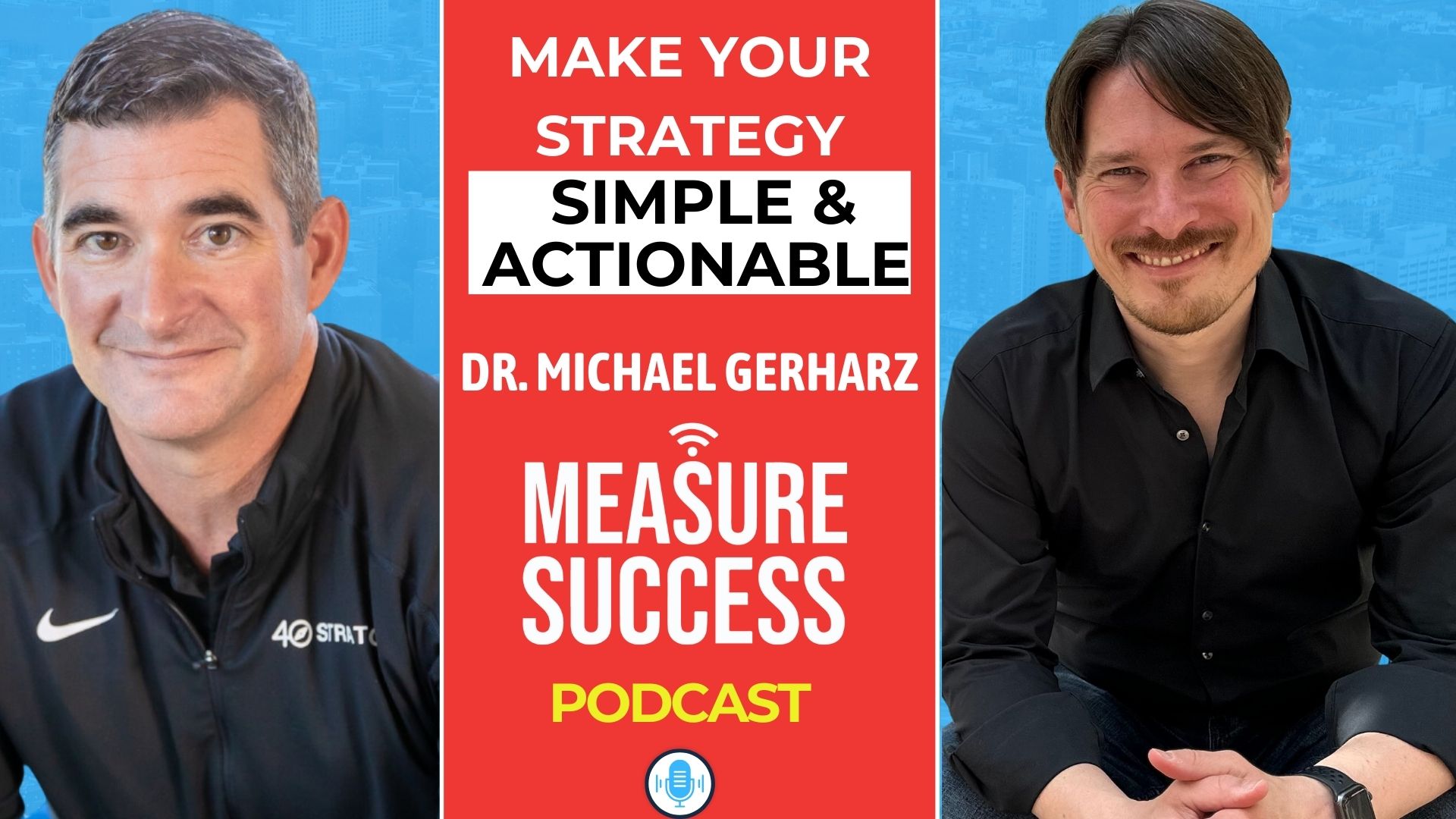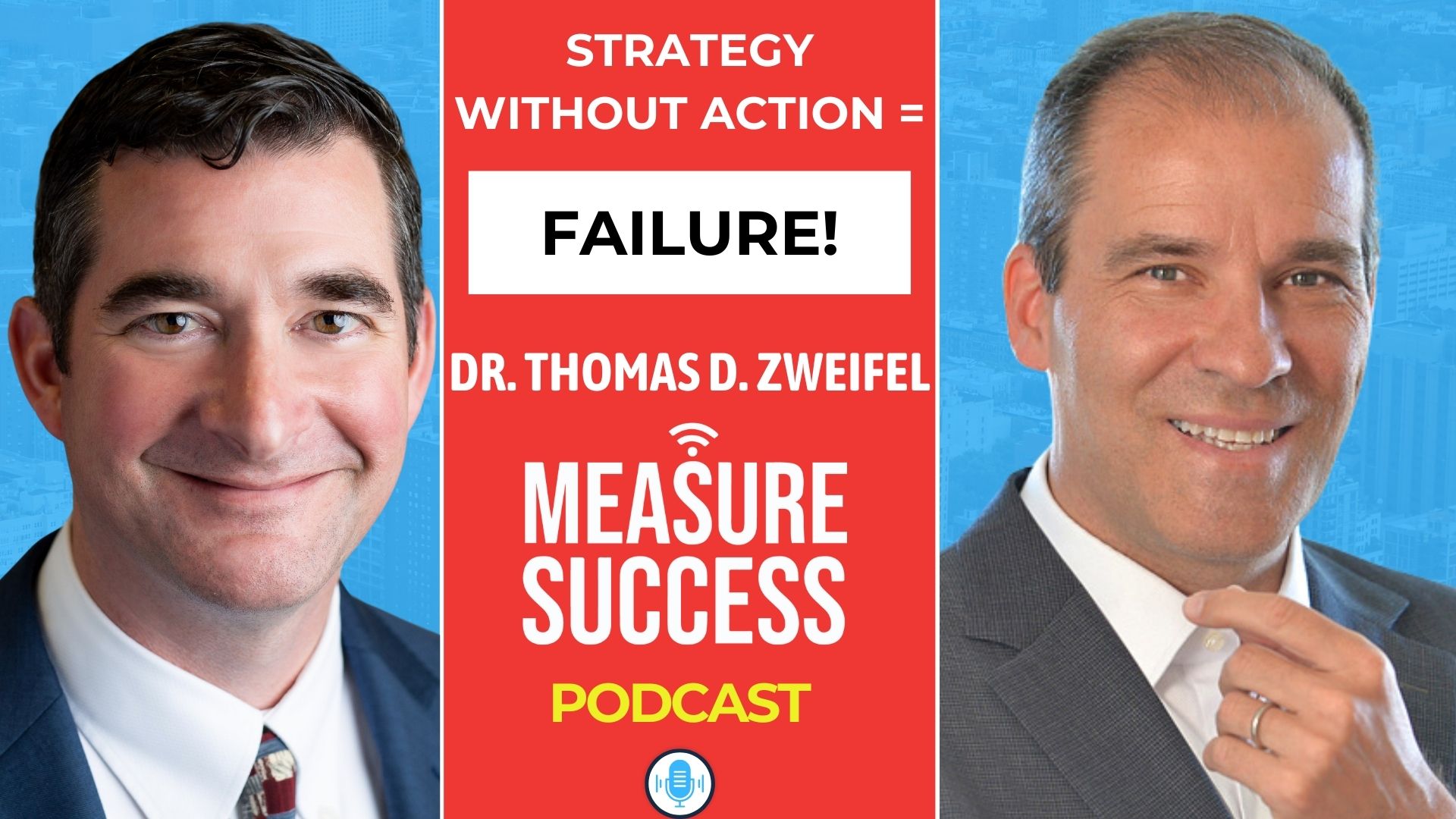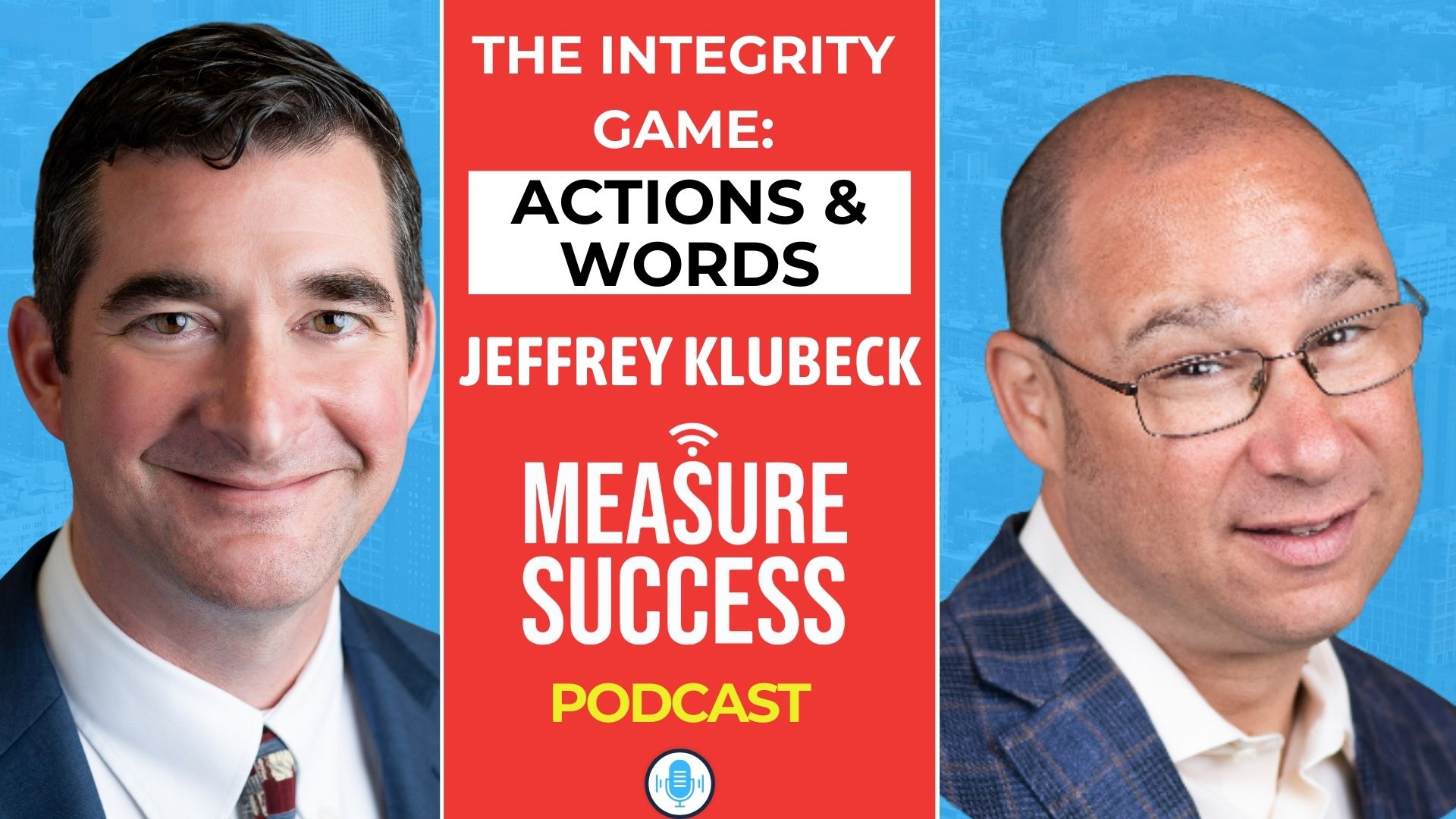
Mark is a certified Executive Masters Professional Director, and Cyber Intelligence Professional. He completed Harvard Business School’s Executive Education Program for board directors and previously served as an Engineering Officer in the U.S. Merchant Marines.
Here’s a glimpse of what you’ll learn:
- Mark A. Pfister discusses the two different types of boards and their focus areas
- How simultaneity shaped digital transformation in the boardroom during the pandemic
- Mark talks about the value culture brings to an organization
- How can you evaluate the architecture of your board?
- Mark discusses his book and shares his experience after publication
- What does it take to be a successful board director?
- What Mark looks for in a board: respectful dissent
- Mark shares his motivation behind speaking engagements and what is on his bookshelf right now
In this episode…
How do you oversee a mechanism that is rapidly changing? Keeping a balance between governance and strategy is essential for growth, both for the organization’s team and the board. So, how can your board weather a supply chain disruption and still grow?
Mark A. Pfister, CEO and Chief Board Consultant at M. A. Pfister Strategy Group, is laser-focused on the executive leadership and board space. He has experience across multiple facets of the industry and knows how to integrate governance and strategy within your board — like the fact that your board needs to be savvy to new processes and different technologies in order to thrive during accelerated times. Mark knows a board is not just about bureaucracy; it’s about having the ability from a governance standpoint to be directly integrated into the strategy.
In this episode of the Measure Success Podcast, Carl J. Cox talks with Mark A. Pfister, CEO and Chief Board Consultant at the M. A. Pfister Strategy Group, about the insight and governance of a board. Mark explains the ways the architecture and efficacy of a board links with an organization’s team, how the pandemic accelerated the digital transformation in the executive space, and the direct correlation of governance to strategy simultaneity. Stay tuned!
Resources Mentioned in this episode
- Mark A. Pfister on LinkedIn
- M. A. Pfister Strategy Group
- Grant Stockton on LinkedIn
- Playing To Win: How Strategy Really Works by A.G. Lafley and Roger L. Martin
- 40 Strategy
- Contact 40 Strategy
- Carl J. Cox on LinkedIn
Sponsor for this episode…
This episode is sponsored by 40 Strategy.
40 Strategy provides strategic planning and consulting to help organizations realize and achieve their dreams by creating and measuring KPIs for success.
Unfortunately, most organizations only spend 2% of their time — or about 40 hours per year — on building an effective strategy.
Increasing the success of those 40 hours is what 40 Strategy does because your success is their passion — and that’s why organizations look to them for guidance.
Not only does 40 Strategy help you craft and implement an effective strategy, but they’ll also work to facilitate teams with proven practices and help with your scenario planning.
Harvard research shows that you can triple your success when you use the right Key Performance Indicators. Who doesn’t want that?
If you have questions, you can reach out through their website or email them at catch@40strategy.com.
Episode Transcript
Intro 0:03
Welcome to the Measure Success Podcast where we feature top leaders on how they measure success in their business and life. Now, let’s learn from their experiences.
Carl J. Cox 0:18
Carl J. Cox here and I’m the host of the Measure Success Podcast, where I talk with top leaders about effective strategies that inspire success. This episode is brought to you by 40 Strategy, and 40 Strategy. We provide strategic planning consulting, to help organizations realize and achieve their dreams Mark, basically what we do is we help companies and organizations create strategic plans and measure the right KPIs for success. Only 10% of organizations actually accomplish two thirds of their strategic objectives. Now know about you, Mark, but I think that’s pretty crazy. But that’s a little amount of success. I’m sure you’ve seen that on a regular basis with your organization. Is that true?
Mark A. Pfister 0:56
Absolutely. Absolutely. I’m not surprised by those stats. Unfortunately.
Carl J. Cox 1:00
Unfortunately, exactly. So said 40 Strategy your success is our passion. That’s why organizations call on us to help not only do we come up with strategy, but we come up with in facilitate your teams with proven practices. However, research shows that when you actually focus on the right KPIs, you can triple your success and who would want that so you can email us today at catch, like catch a ball at 40strategy.com, or you can learn more at 40strategy.com. Before we talk about our guest here, Mark Pfister. We’re going to have a quick shout out to Grant Stockton Grant Stockton is the partner at Brisbee & Stockton, who has been a longtime friend, and also a he’s been a referral to too many clients. For us, all of our clients would come in through a referral basis. So grant, I just want to say thank you for supporting 40 Strategy. And with that, I’m excited to announce our guests. Mark A Pfister . Mark is the CEO of the M. A. Pfister Strategy Group that serves as a strategy Advisory Council. And for executives and boards. He is chairman and CEO of integral integral board group. He is creator of the board has a service engagement model. He is also a board director and consultant working with hundreds of boards who are public, private and nonprofit. Mark speaks at over 80 events annually. And I think if you do ask told me, you’re booked all the way through June of 2020, sorry, late 2022. And which is pretty, pretty amazing. You do an international speaker tours and the topics of strategy, building an effective board for your company, and becoming an exceptional board director candidate. you completed your Harvard Business School executive education program from board directors, and your Executive Master professional, certified board director. You also hold a certified cyber professional board certification. Your monthly board letter reaches over 27,000 business leaders in over 70 countries. And you’re also the author of across the board. Mark, in his early days served as an engineering officer in the US Merchant Marines. Mark, thanks so much for being on the show. Carl. Thank you. Always a pleasure to be with you. Thanks. Well, Mark, there is so much to talk about since we had our last webinar back right in the midst of COVID. Right, you know, this was in April, May of 2020. And I didn’t tell you this, Mark, this was one of these, like, shocking events of how things were that period of time. After our webinar, I was so excited about it, right? We got a great guest and it’s great dialogue. I sent out a bunch of emails and said, Hey, if you need any information, let me you know, just let me know. And crickets, I didn’t hear one response period of time. But what was interesting was that was just a reflection of the times. You know, it was everything was frozen at that moment, everyone was just thinking about survival strategy was the last thing people were thinking about. They were just how can I pivot to survive? Now, here we are in July of 2021, nearly you know, almost, what 64 1415 months later, and things are starting to normal again. Right. They’re back and where they are. So I’m curious for you, for people who don’t know who you are and what you do. Can you give us a little bit more background about your company or organization and what it does? Sure, sure.
Mark A. Pfister 4:21
And what you mentioned about the shutdown, and the reopening resonates with me as well. So I think everybody went through that same experience. So my background for the last 10 to 15 years has been laser focused in the executive leadership space, and even more specifically in the board director space. I do everything from speaking to board consulting to even the education and certification areas as it relates to the board director areas. For me, it was one of the areas Carl that if we, if we agree that yes, governance is part of leadership, but you add into that the fact that the best leader is also balanced their governance with 50% Have strategy input into this right? You can’t really govern something if you don’t understand the strategy. That to me is truly why I gravitated very heavily, so into the leadership area, and even more specifically into the board space. And that’s really where I focus a significant amount of my efforts, both in the teaching and the consulting room.
Carl J. Cox 5:19
Yeah, yeah, that’s. So thank you for sharing that and giving people more of a deeper understanding. So over once again, over this period of time, organizations have seen so much change, and they’ve had some extremely negative impacts. For others, they’ve been able to take advantage of the opportunity to have excelled and grown, you know, to all new heights as a result of this. But there was four things that I think had been interesting. You know, we had obviously COVID, which we’ve talked about, there’s been cybersecurity challenges that have been, you know, on the headlines. government involvement, as I make an argument hasn’t been more involved in this in decades. If not, you know, it’s been incredible the amount of involvement, the amount of companies that took PPP loans, right, that were a smaller basis. And then the last part is, of course, has been diversity. Right, and having more inclusion with organization and boards. Of those four topics, what has been to you the biggest thing you’ve heard on a consistent basis over that period of time?
Mark A. Pfister 6:22
Yeah, it’s a great question. And I’ll say it maybe a little bit differently, that you may, then you may expect to my answer, but all four of the areas that you mentioned, specifically point back, and I’ll correlate this to a board, which is really a microcosm of the entire company in the entire organization, all for the areas you mentioned. The boards were either prepared for the most part for those for those four scenarios, or they were unprepared in all four of those areas or scenarios. And the reason for that is that boards that were doing their risk in scenario planning, right, which is an aspect of strategy, right, the strategy of the risk side is is a huge piece of this, the boards and I do a comparison of this also, that may be a little helpful to your to your listeners, Carl, which is the following boards that are solely focused on governance, I view them as very reactive boards, because they are they’re waiting for something to happen, then they’re responding to it. And they’re typically not ready to respond in a proper way. And those are the boards that you could say are surviving. Right. Then at the other end of the spectrum, you have the boards that are thriving, those are the boards that do what I mentioned a moment ago, they’re keeping a balance of governance with strategy, and they understand that interrelationship between those two. And for those boards, even though they may not as an example, have been able to predict the pandemic, of course, right. They had some semblance of control over the scenario, because they had focused on other areas that were life altering to their business through their risk and scenario planning. So by incorporating these fundamental and foundational areas of focus that a board should be focused on risk, right, risk and scenario planning is directly Of course, related back to the risk area, and hopefully, there’s a risk committee that’s, that’s focused in those spaces that are could have huge impacts to the overall organization. Those boards, yes, it was, it was a big, a big impact, but they were more well prepared to respond to that in a quicker manner with the proper types of decisions, right. cybersecurity is another great example, boards that were woefully unprepared with that without having any type of experience in the technology space, or as it relates to the cybersecurity component, they were in a world of hurt. But then you on the other hand, you have boards that may have had some level of expertise as a board member that was present, but a good portion of the remaining board, maybe not technology geniuses, right, or maybe even you could say their technology technologically clumsy, but they at least had some background or foundation of understanding a cybersecurity framework. So understanding going through the cycles of identify, protect, detect, respond and recover, right. So they would know that if an organization leading up to a breach was solely focused on identify and protect, but the conversation of detect, respond and recover never came up, there’s a board also, that’s not looking deeply enough into its strategy. And you’re gonna see that much of the things I discussed. And I think one of the reasons, Carl, we’re such good friends is that we see this link of strategy just about everything that we do, right, both professionally and personally. There’s a link back to that and how you think, how you operate and even how you lead teams to make sure the teams are involved and understand why it’s important not just to you but to them. Yeah, so all those pieces are interlinked. It’s rare to find a board that’s good at one thing and bad at others. They’re usually good at many things or they’re bad at many things in between on that.
[continue to next page]











